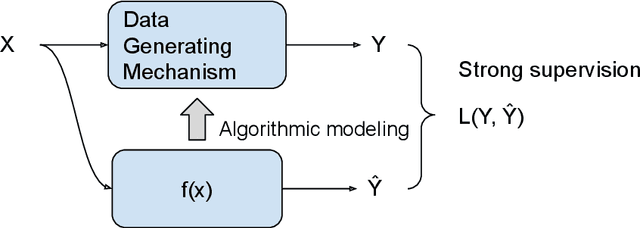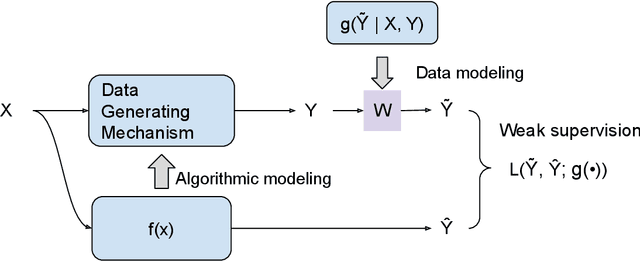Weakly Supervised Learning Creates a Fusion of Modeling Cultures
Paper and Code
Jun 02, 2021


The past two decades have witnessed the great success of the algorithmic modeling framework advocated by Breiman et al. (2001). Nevertheless, the excellent prediction performance of these black-box models rely heavily on the availability of strong supervision, i.e. a large set of accurate and exact ground-truth labels. In practice, strong supervision can be unavailable or expensive, which calls for modeling techniques under weak supervision. In this comment, we summarize the key concepts in weakly supervised learning and discuss some recent developments in the field. Using algorithmic modeling alone under a weak supervision might lead to unstable and misleading results. A promising direction would be integrating the data modeling culture into such a framework.
 Add to Chrome
Add to Chrome Add to Firefox
Add to Firefox Add to Edge
Add to Edge